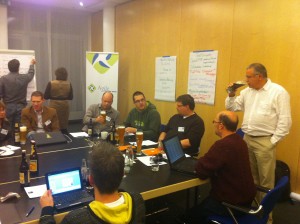 November 14-17 I attended Agile Testing Days in Potsdam. It was a great experience! In a series of experience reports on my blog I will reflect this conference. I want to start with the gathering of testers Jean-Paul Varwijk and I organized called PaTS (Potsdam agile Testers Session).
November 14-17 I attended Agile Testing Days in Potsdam. It was a great experience! In a series of experience reports on my blog I will reflect this conference. I want to start with the gathering of testers Jean-Paul Varwijk and I organized called PaTS (Potsdam agile Testers Session).
Jean-Paul and I love to discuss testing with other passionate testers. That is why we
both are in DEWT, participate at TestNet and some other initiatives. Zeger
van Hese, fellow DEWT (and Programme Chair EuroSTAR 2012. GRATS again
Zeger!) told us about the Rebel Alliance at EuroStar 2010 and Jean-Paul and I decided to try to organize something similar.
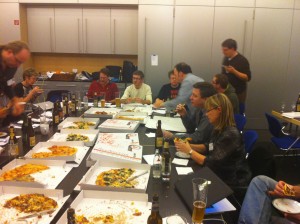 So we arranged a room, made a shortlist of special and interesting people from the
So we arranged a room, made a shortlist of special and interesting people from the
(agile) software testing scene and send out an email announcing PaTS: a get
together on Wednesday evening 16th of November 2011 in Potsdam. We defined our
event as an informal off-conference evening, with drinks and pizza to talk and
debate about testing, have fun and debate some more. It turned out to be a fun and interesting evening!
Rob Lambert, Rob van Steenbergen, Daniel Levy, Janet Gregory, Simon Morley, Brett L. Schuchert, James Lyndsay, Stevan Zivanovic, Jim Holmes, Bart Knaack, Lisa Crispin, Olaf Lewitz, Mike Scott, Jurgen Appelo, Thomas Ponnet, Cecile Davis, Michael Bolton, Jean-Paul Varwijk and me gathered in the test lab and we first ordered some jumbo pizza and beer. Thanks to Telerik for sponsoring the beer!
We made a list of interesting topics and conducted a “dot vote”. This is the list
and the dot ranking:
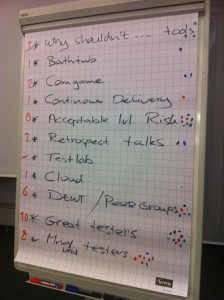 Great Testers – 10
Great Testers – 10
Management of testers – 8
Acceptable level of risk – 8
DEWT / Peer groups – 6
Tool topic – 3
Coin game – 2
Retrospect ATD talks – 2
Bathtub – 1
Continuous delivery – 1
Cloud – 1
Testlab – 0
We agreed to give every topic 10 minutes and “Caesar vote” after the time box to see if the group wants to give the topic extra time. During the evening the 4 top topics were discussed. Rob Lambert made some great mind maps of each topic. He let me take pictures so a massive thanks to him! You can also find them here.
Lisa Crispin started the discussion: “Most important is attitude, we will teach them the
skills”. And I fully agree. The group also mentioned passion as very important. When somebody is passionate about his work, he wants to improve and learning will become an essential part of his daily routine. Curiosity and quick learning are skills which were mentioned here as well. Another characteristic of a great tester is to be able to see things different or as Michael Bolton said: a great tester is capable of seeing complexity in apparent simple things and simplicity in apparent complex things.
Of course communication was mentioned as an important skill to be able to exchange knowledge. Michael Bolton ask what was meant with communication and he summed up 27 different forms of communication. I have to study the list, but I think that will end up as a separate blogpost here.
There was also a discussiuon about structured vs. unstructured testing (scripted vs. exploratory testing). What the conclusion was of this skill I can’t remember. But for me I value testers who can do both and are not affraid of thinking of their own. Exploratory testing gives a tester freedom but also forces him to keep thinking.
Other characteristics/skills mentioned during the discussion: cultural fit, humility, empathy, honesty, domain knowledge and sense of humour. Good to see a lot of human factors discussed.
I will further work on the other 3 topics discussed. But the mind maps by Rob Lambert give you a nice overview what was discussed.
Manage / lead testers to become great
DEWT / Peer groups
Acceptable level of risk
You can find some other experience reports of PaTS by Rob van Steenbergen, Jean-Paul and Olaf Lewitz.

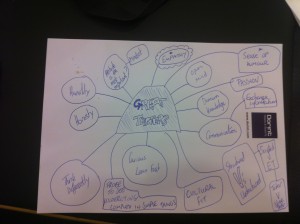
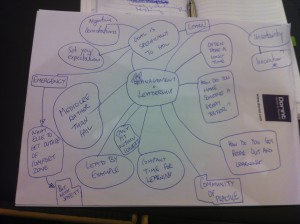
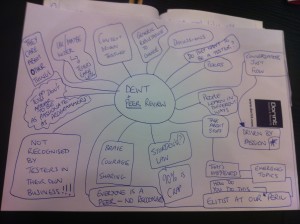
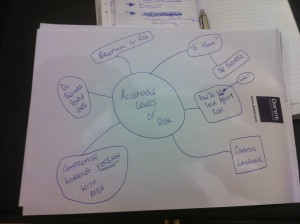
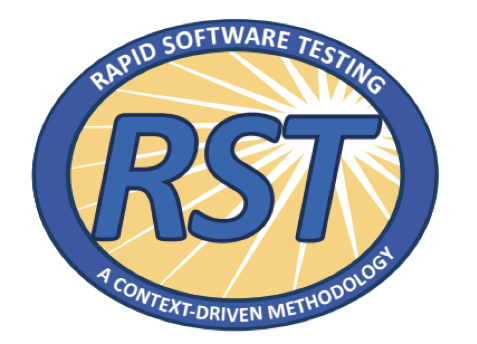

Recent Comments